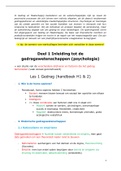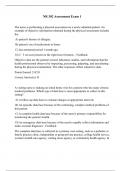Class notes
Introduction to virology
- Course
- Institution
Unlock the intricate world of viruses with this meticulously crafted set of lecture notes on virology, ideal for undergraduate and graduate students alike. This document serves as a comprehensive guide that dives deep into the fundamental concepts and advanced topics within the field of virology.
[Show more]












